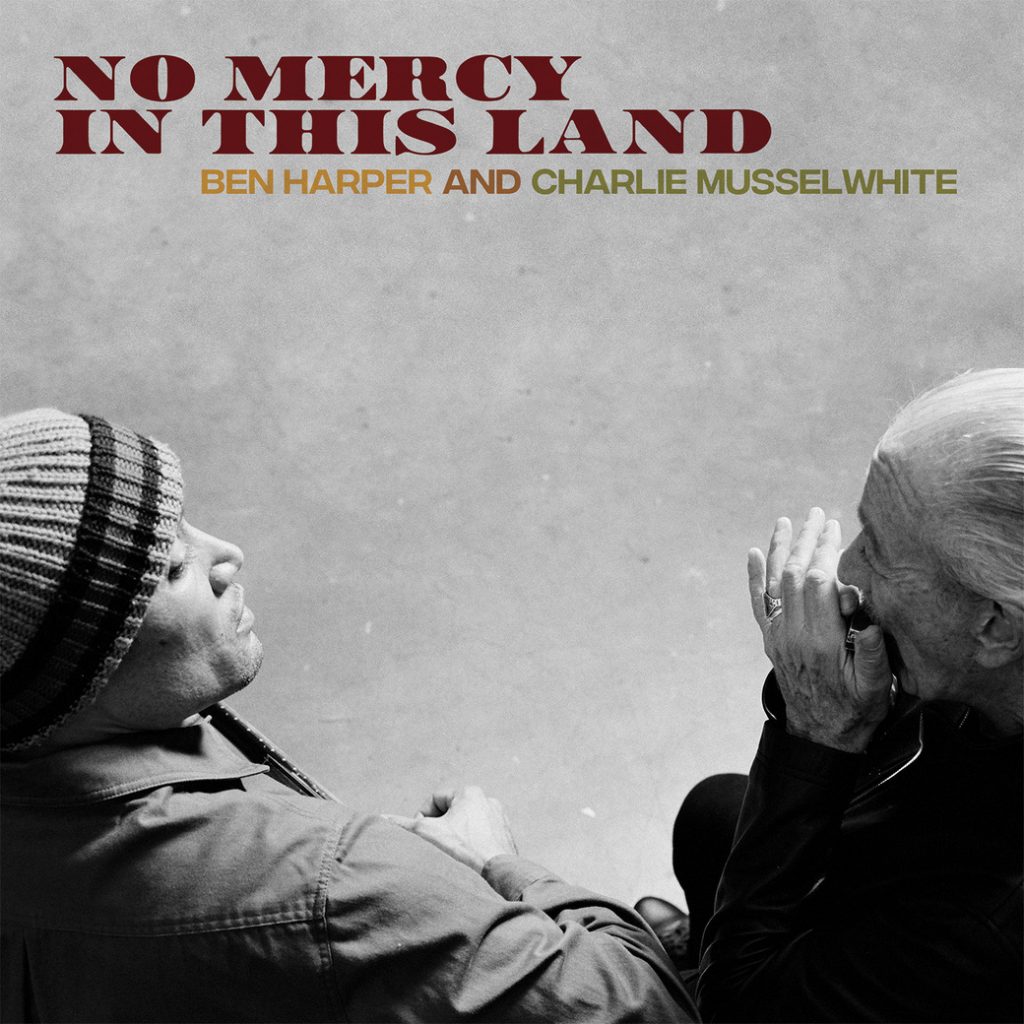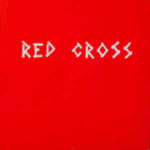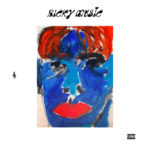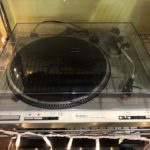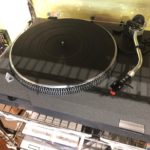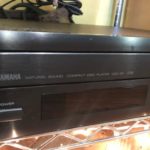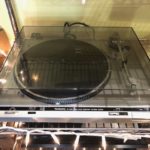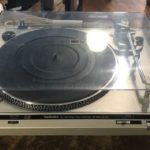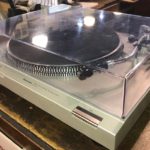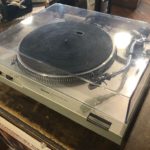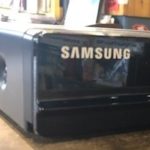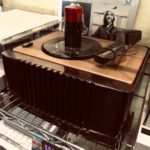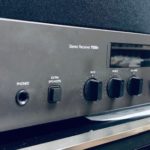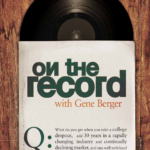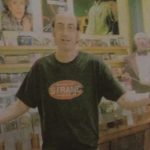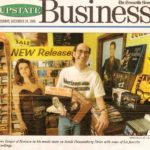BETTYE LAVETTE, Things Have Changed (CD)
Take one of the world’s foremost soul interpreters, turn her loose on the songbook from roots music’s most respected singer-songwriter, bring in a veteran and sympathetic boardman who entices some of his celebrated musician friends to guest, and hang on — as this perfect storm yields a riveting meeting of the minds. But Bettye LaVette doesn’t just saunter through Bob Dylan’s better known material; rather, she and drummer/producer Steve Jordan dig deep into Zimmerman’s catalog to excavate and reinterpret seldom anthologized gems spanning 1964 through 2006. And when she does tackle established Dylan fare like “It Ain’t Me Babe” or “The Times They Are A-Changin’,” she and Jordan take risks by rearranging them in ways so musically unlike their initial recordings, even long-time Dylan fans won’t recognize the songs until the lyrics kick in. The idea of covering his tunes almost borders on cliché at this late stage, yet LaVette and Jordan twist the model in so many unusual and interesting directions, the results sound fresh and inspired. The relatively stripped-down backing includes such A-team names as bassist Pino Palladino (The Who), Leon Pendarvis (Luther Vandross) on keyboards, and guitarist Larry Campbell (Levon Helm), all established journeymen. Add Jordan buddy Keith Richards to lay his licks over a few selections, including a bluesy “Political World” injected with Neville Brothers funk, along with Trombone Shorty who, with fellow New Orleans-resident Ivan Neville, brings the seldom covered “What Was it You Wanted” (from 1989’s Oh Mercy) into Marvin Gaye’s What’s Going On territory with a stunning, revelatory performance. Only dedicated Dylan followers will recognize obscurities like “Emotionally Yours” and “Seeing the Real You at Last” (both tucked away on 1985’s Empire Burlesque), “Ain’t Talkin’” (that closed out 2006’s Modern Times), the lovely ballad “Mama, You Been on My Mind” and the terrific title track, which first saw the light on the soundtrack to Wonder Boys. Everyone else will marvel at LaVette not only uncovering these often hidden jewels, but diving into them with her powerful, clearly enunciated and distinctive soulful rasp. She grabs onto “Do Right to Me Baby (Do Unto Others)” from Dylan’s somewhat maligned Slow Train Coming, wrestling it into a stunning muscular rocker far different and more intense than the original’s subtle jazz/blues. Gregg Allman tackled “Going Going Gone” on his final album from 2016 and LaVette now revisits it to close out this set in mesmerizing, ruminative form. These dozen performances will make listeners reassess songs some already know. But more likely they’ll be stunned at how LaVette revitalizes and shape shifts them into her own soulful reflection. Dylan’s compositions have effectively been converted into Bettye LaVette songs, a transformation you can’t help but believe even Bob will appreciate.
FRANKIE COSMOS, Vessel (CD/LP)
One would be hard pressed to find a contemporary rock group that utilizes short song structures as effectively as Frankie Cosmos. The fact that Greta Kline is able to conjure such vivid images in under two minutes shouldn’t be understated. With Vessel, Kline balances the tightrope of lyrics and music with the confidence of an artist who knows their strengths. The ability to match form and aesthetic is pivotal to any artist’s vision. This ability is evident on the song “As Often as I Can.” On the song, Kline sings, “I love you so / I’ll let you know / As often as I can.” Though the lyrics promise commitment, Kline doesn’t actually say ‘I love you’ that much during the 1:04 — barely two times altogether. The inability to express authentic affection is a central theme to many of the new songs. Here’s a (cool?) activity to try: instead of listening to Frankie Cosmos’ Vessel, read it! Yes, reading isn’t as fun as the infectious indie pop music vibrating behind the new album, but even without instrumentals Greta Kline’s lyrics read like impressionistic poetry. The words capture a mood or thought eloquently, then vanish. They’re worth your time. Still, you should probably listen to it too. Subtle verbal deliveries revitalize the anxiety present in many of the songs. Greta Kline delivers her phrases with what is best described as melancholic effervescence. The way she pronounces “caramelize” (care-ah-melize), the nervous giggle following the false start in “Ur Up” and the energetic countoff for “Being Alive” all have a strange way of diffusing depression. In the end, Vessel is about love. It’s about the love we feel for friends and partners and ourselves. Love is simultaneously a source of comfort and great anxiety. Kline grapples with this contradiction on the album, but she emerges better for the experience. Vessel is Kline’s most emotionally intelligent album to date.
BEN HARPER & CHARLIE MUSSELWHITE, No Mercy In This Land (CD)
With a Grammy for best blues album in their pocket for 2014’s “Get Up!” Ben Harper and Charlie Musselwhite put themselves in contention again with “No Mercy in This Land.” The credit sheet gives the impression of a lopsided May-September collaboration. Harper wrote or co-wrote the 10 tracks, sings and plays guitar (slide, acoustic, electric) on all of them and co-produced the record. All Musselwhite does is play the harmonica and intone some emotional verses on the title track. Just like all Shakespeare did was write plays and poems. The album veers between electric and acoustic sounds, from songs about the challenges and thrills of love to a couple of tunes about alcoholism and others about seemingly insurmountable hardships. There are sharp observations and knowledge of the world in Harper’s songs — “Everybody says I love you/But not everybody lives I love you” and “You may have learned to hustle/But you never learned to dance” — and they’re a great fit with the duo’s magnetic blues repertoire, blended with gospel, soul and rhythm & blues. “The Bottle Wins Again” rages, “Bad Habits” shakes, “Moving On” struts and “Found the One” sounds ripe for a cover by Harper’s other veteran collaborators, the Blind Boys of Alabama. Musselwhite’s tones range from Little Walter-like overdriven vamps to a caressing contribution reminiscent of Larry Adler on the excellent album-ending ballad “Nothing at All.” Lead guitarist Jason Mozersky, whose solos blend beautifully with Musselwhite’s, bassist Jesse Ingalls and drummer Jimmy Paxson form a tight, flexible unit. There’s no audible generation gap on “No Mercy in This Land,” just a pair of kindred souls who know how to make great music.
VARIOUS ARTISTS, Isle Of Dogs (Original Soundtrack) (CD)
JUKEBOX THE GHOST, Off To The Races (CD/LP)
KACEY MUSGRAVES, Golden Hour (CD)
APOLLO BROWN/GHOSTFACE KILLAH, The Brown Tape (CD/LP)
MARY-CHAPIN CARPENTER, Sometimes Just The Sky (CD/LP)
CZARFACE, Meets Metal Face (CD)
COMING SOON:
BLACKBERRY SMOKE, Find A Light (4/6)
DR. OCTAGON, Moosebumps (4/6)
SARAH SHOOK & THE DISARMERS, Years (4/6)
And don’t forget these STILL-NEW platters that matter!
JACK WHITE, Boarding House Reach (CD/LP)
How does one represent in 2018 as both rock hero and cross-cultural ally? It’s a question every artist ultimately needs to answer for themselves. Jack White seems to be wrestling with the question on Boarding House Reach – a messy, sprawling, daffy, howling set that sounds spiritually hungry, collectively driven and, instructively, a little bit lost. It’s his strangest record, but per usual, it shows his continued devotion to rock’s dark arts: the tangled cultural roots, “mistake”-enhanced recording traditions, self-righteous fury and fetchingly-deranged megalomania. Boarding House Reach seems to ponder rock’s racial fluidity, too. Tellingly, it looks less to Jack White’s adopted city of Nashville than to his hometown of Detroit, the industrial giant and Great Migration magnet that shaped Aretha Franklin, George Clinton, and Juan Atkins, alongside the Stooges, the MC5, and Lester Bangs. That’s not to mention the pale-faced rappers who’ve made engagement with black-rooted culture into a sometimes-problematic cottage industries, including Eminem (whose ally-hood includes his pro-Colin Kaepernick, pro-military viral “freestyle” on last year’s BET Hip-Hop Awards) and Kid Rock (who recent liberal-bait includes shilling “GOD GUNS & TRUMP” t-shirts on his website). White mentioned having Motor City heroes Funkadelic in mind on Boarding House Reach, as well as Miles Davis’s seventies jams, and that’s evident in the sound. The LP also takes off from the hip-hop-minded acid funk White forged on 2014’s Lazaretto (the title track, the instrumental single “High Ball Stepper”), with flashes of Paul’s Boutique and golden-era Bomb Squad. As they do on most “rock” records of note lately, electronics figure prominently, but in surprising ways. The triptych centerpiece of “Hypermisophoniac,” “Ice Station Zebra” and “Over and Over and Over” is a three-fer groove storm with state-of-the-digital art Critter & Guitari synth squalls, heavy metal blast beats, sick guitar excursions, old-school rap flows and jazz piano asides. The raps are striking from a guy whose disinterest in hip-hop is on record, if maybe exaggerated in the public perception, especially for a guy who was collaborating with rappers even before his aborted team-up with Jay-Z. Mostly White sounds like a scrappy, abstract-leaning ’80s-style battle rhymer who probably didn’t win a lot of battles. Elsewhere, experimental detours dead-end: “Everything You’ve Ever Learned” feels like aimless twaddle with newly-unboxed digital toys. But at its best, the spirit of freaky free-play is thrilling and refreshing, a worthy end unto itself, especially given the caliber of players (MVP drummers Carla Azar and Louis Cato, multi-instrumentalists DJ Harrison and Neal Evans). Like nearly all of White’s work, it manages to feel fresh, original, and still deeply rooted in history. On “Ice Station Zebra,” named for the 1968 spy film starring a queer white matinee idol (Rock Hudson) and a black football hero (Jim Brown), White rhymes “yo” and “Caravaggio” to sermonize about how creative influence and musical exchange take place. “Everyone creating is a member of the family/Passing down genes and ideas in harmony/The players and the cynics might be thinking its odd/ But if you rewind the tape we’re all copying god,” he flows. Self-serving perhaps, and maybe explicitly at odds with his recent dis of DJ Khaled for copying Santana’s “Maria Maria” on “Wild Thoughts.” But philosophical consistency is one thing, art’s another, and within the closed-circuit of a song, White makes a case for cosmic unity as logical and true to the groovy Detroit we’re-all-in-this-mess-together tradition as anything on Funkadelic’s Cosmic Slop. Power to him.
PAUL THORN, Don’t Let The Devil Ride (CD)
With the Blind Boys of Alabama and the McCrary Sisters as guest vocalists, the Preservation Hall Horns among the musicians, and Rick Hall’s Fame and Sam Phillips’ studios as well as Preservation Hall providing recording mojo, Thorn could have performed “Happy Birthday to You” and it would have sounded smothered in tangy barbeque sauce. But Thorn taps his sacred roots (his father was a bishop in the Church of God of Prophecy, a Pentecostal denomination) as well as his abiding affection for African American gospel music, and especially Kevin Nutt’s Sinner’s Crossroads radio show on WFMU, to showcase gospel and spiritual staples done with profound respect for the originals. It’s his first all-gospel album. Thorn’s sound is a cross between Eli “Paperboy” Reed and the early work of fellow Pentecostal singer Brother Claude Ely. The album celebrates wooden church religion from the opening rouser, “Come On Let’s Go,” to the very end. None of the songs will be unfamiliar to the gospel enthusiast, and especially to those who prefer the prewar guitar evangelist and postwar gospel quartet styles. Among the standouts is the go-to quartet song, “He’s a Battle Axe.” It incorporates the lyrics of “The Lord’s Alphabet,” a Golden Gate Quartet selection in which Christ and his infinite abilities are described using 26 words, each starting with a different letter of the alphabet. Thorn puts a Pops Staples twang into the unabashed sacred-secular mashup that is the title track, written by O.V. Wright and done solidly by Chicago’s Windy City Four. Outstanding slide guitar work propels the Blind Willie Johnson classic, “Jesus Gonna Make Up My Dyin’ Bed.” Thorn and company form into a choir to deliver a slow-as-molasses version of the O’Jays’ “Love Train.” In the process, they unearth a soulful spirit normally buried beneath the beat. On the other hand, a sped-up version of “Soon I Will Be Done” converts the spiritual into a joyful congregational singalong, complete with handclapping. On “Keep Holding On,” Thorn sings, “I can make more money / By singing rock and roll / But I’ll keep singing for Jesus / Until I don’t have a suit of clothes.” That’s living the life you sing about, son. Thomas A. Dorsey, for one, would approve. Don’t Let the Devil Ride deserves all the attention it can muster so Paul Thorn can continue singing for Jesus without worrying about the status of his wardrobe.
GUIDED BY VOICES, Space Gun (CD/LP)
For a celebrated rock band that’s by now old far enough to order a Miller at the bar, Guided by Voices have always had a weird shyness about releasing a big-time, polished rock record, start to finish, full stop. Space Gun, the group’s most consistent album to date, is that record. It’s not that Robert Pollard and his long-running band haven’t come really close. Their first slick musical reinvention, the Ric Ocasek-helmed Do The Collapse (1999), featured music commercially accessible enough to soundtrack film and TV like NCAA Football and Buffy the Vampire Slayer, but was lessened by its claustrophobic production. Its follow-up, Isolation Drills (2001), halted its glorious high fidelity for the slightly self-conscious tape-recorded acoustic guitar interlude “Frostman,” as if these Midwesterners were to say, “Look, we haven’t gotten a big head or anything.” This isn’t exactly a bad thing, and I imagine there are GBV fans who would see me as heretical for questioning “Frostman.” But it speaks to a certain longing in the group’s fanbase that’s been fitfully fulfilled. This is part of what makes Space Gun so thrilling. It’s an exhilarating rush of well-oiled playing, great production and even better tunes, and it displays the tightest-ever Guided by Voices lineup at full bore. More than on any other GBV album, Space Gun has got an interstellar fascination and a curiosity about the future. Pollard’s word bank has become paranoid and suspicious of our data-bloated modern world. “It’s no fun being lost in a make-believe city,” Pollard sings in the standout single “See My Field.” “The Star Wars people look and laugh.” Elsewhere, the backing players have expanded their toolkit, finding better ways to integrate outré, electronic textures while not interrupting the flow. This rings true for returning guitarist Doug Gillard, who is a huge presence here as an arranger — check out the swelling Mellotron on “That’s Good,” a lost Pollard ballad rescued from the Suitcase demo compilations and given a bath, shave and a haircut. Gillard also includes found sounds in unique ways — the whining paper-towel dispenser in the title track, the silly, chirping cat toy at the top of “I Love Kangaroos,” the white noise that consumes “Hudson Rake.” So, this is something like the the one hundred and second Pollard album, with the promise of another double album in 2019. How do we process this one? It’s a fulfilled campaign promise, in a way. It delivers on the awe-inspiring noise of the group’s greatest lineup to date on record. It captures our era in only the most Pollardian way. And although we might get hit with yet another album faster than a speeding bullet, Space Gun is a zippy, exhilarating gem on its own terms.
WYNTON MARSALIS, United We Swing (CD)
Blue Engine Records makes the most memorable performances from Jazz at Lincoln Center’s historic gala concerts available for the first time with the release of United We Swing: Best of the Jazz at Lincoln Center Galas.The album-which features some of the 20th century’s biggest musical stars, including Blind Boys of Alabama, Jimmy Buffett, Ray Charles, Eric Clapton, Bob Dylan, Lenny Kravitz, John Legend, Lyle Lovett, John Mayer, Audra McDonald, Natalie Merchant, Willie Nelson, Carrie Smith, James Taylor, and Susan Tedeschi, and Derek Trucks. Recorded between 2003 and 2007, United We Swing finds an unparalleled array of music talent that collectively boasts 94 Grammy Awards joining Jazz at Lincoln Center Managing and Artistic Director Wynton Marsalis (a nine-time Grammy Award winner himself) and some of the world’s top jazz musicians to perform blues-inflected versions of iconic American repertoire. Their backgrounds and musical stylings are diverse, but together these artists raise their voices to highlight jazz’s importance to America’s cultural heritage and to remind us that, even in divided times, music can unite us all.
Danish guitarist Jakob Bro was something of a late bloomer as a leader on ECM. Several sideman stints for the label in service of Paul Motian and Tomasz Stanko finally parlayed into project in the driver’s seat in 2016 despite his having made nearly a dozen albums on his own self-produced imprint Loveland dating back to 2003. The lag certainly wasn’t due to an absence of accolades in his native country. That esteem is justified on Returning, which teams him with American bassist Thomas Morgan and two elders of the Scandinavian jazz community, trumpeter Palle Mikkelborg and drummer Jon Christensen. Bro embraces an indelible and comprehensive aesthetic from the outset, one comprising eight tone poems that clock to an efficient LP-length forty-minutes. “Oktober” blends watercolor washes of muted trumpet and guitar with the even-keel plink and plunk of Morgan’s strings and Christensen’s quiet cymbal chatter to create a glacial grayscale reverie. “Strands” winds outward around a central riff by Bro picked up by Morgan and elaborated by Mikkelborg’s vapor trail phrases on muted and open horn as subtle mallet play limns the edges. “Song for Nicolai” turns inward on an evanescent, airily embroidered melody. With music this porous and oxygenated there’s often the danger of inordinate diffusion displacing the weight, but Bro routinely tethers the interplay to durable stanchions that keep both structure and temperament intact. “View” blooms from the simplest of beats by Christensen, fusing with Morgan’s oblique pizzicato patterns in a combination that relies on implied space as it does actual sound. Bro capitalizes on the resulting earned anticipation, holding off entry with Mikkelborg until nearly the halfway mark. “Lyskaster” by contrast is a model of persistent ensemble romanticism, which each player aiming at maximum lyricism in dealing with what amounts to arguably the most dulcet melody of the date. “Hamsun” approaches collective concordance from another direction with Bro sheathing his tones in a glowing sheen of aqueous reverb for an intimate conversation with Morgan sans colleagues. Mikkelborg and Christensen are back on board for the title piece and closing number “Youth” with Bro using a phasing effect on the first to create slanting arcs of striated sound. Echo invades the other instruments as well and the tonally destabilizing results are the closest the quartet gets to dissonance on the session. Bro’s designs align with his label’s longstanding aural protocols without capitulating to them completely and it’s in that distance that this album carries its most impressive cachet.
KURT ELLING, The Questions (CD)
The Questions opens with the powerful, insistent questions and stark, disturbing answers of Bob Dylan’s “A Hard Rain’s A-Gonna Fall.” What follows is the surprising assurance of “A Happy Thought,” a poem by the American poet Franz Wright, set to music by Elling’s collaborator, pianist and arranger Stu Mindeman. This establishes a kind of back-and-forth on The Questions – searching inquiries and thoughtful responses that both challenge and inspire us to find our own answers. The world-weary resignation of Paul Simon’s “An American Tune” is followed by falling, loss, and redemption in Peter Gabriel’s “Washing of the Water.” The Jaco Pastorius instrumental, “Three Views of a Secret,” becomes the celebratory “A Secret in Three Views” with Elling’s lyric inspired by a poem by the 13th century mystic Rumi. Elling’s lyric concedes that quests to find meaning and purpose may all be for naught, but it also encourages us to take heart and awaken to the transforming power of love. In contrast, “Lonely Town,” from the Broadway musical On the Town, by Leonard Bernstein, Betty Comden and Adolph Green, reflects the empty inner landscape when there is no love to come home to.
STEVE GADD, Steve Gadd Band (CD)
The Steve Gadd band, headlined by the legendary drummer, is out with their fourth self-titled album on March 23rd. An eclectic collection of jazz songs that showcase each member’s individual taste and talents, it is certainly a pleasure to listen to. Playing with Gadd are Walt Fowler (trumpet and flugelhorn), Jimmy Johnson (bass), Michael Landau (guitars), and Kevin Hays (keyboards and vocals). Gadd, Fowler, Johnson, and Landau all were members of James Taylor’s touring band, and their familiarity with each other shines through each brilliantly put together track on the album. The songs as a whole are an experience unlike no other- cool jazz, funky riffs, and stellar drum work from one of the most influential drummers in the music industry all come together in a beautifully layered and unique listening experience. With such an impressive group of extremely talented and experienced musicians, this album is as brilliant as one would hope it’d be. It has a dynamic sound that comes from each member of the band contributing their own work, leading to a landscape of gorgeous variety.

